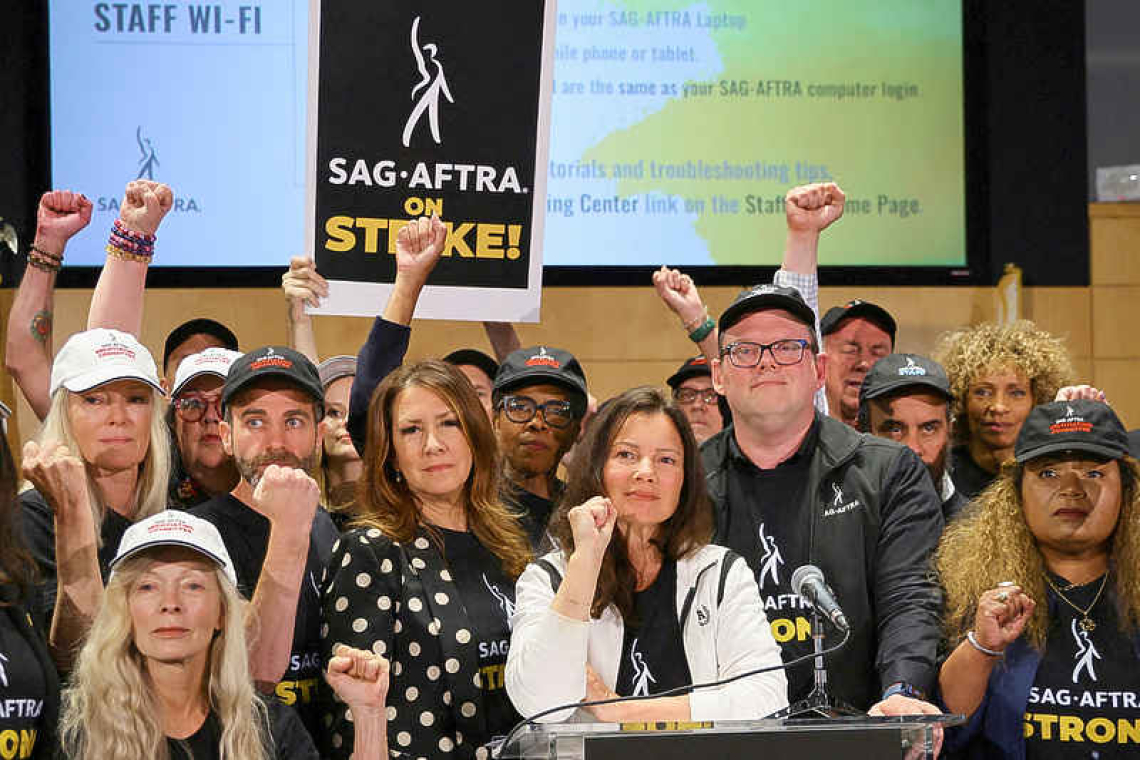LOS ANGELES--Hollywood actors went on strike at midnight on Thursday after talks with studios broke down, joining film and television writers who have been on picket lines since May and deepening the disruption of scores of shows and movies. Studios now face their first dual work stoppage in 63 years, forcing them to halt many productions across the United States and abroad. The twin strikes will add to the economic damage from the writers walkout, delivering another blow to an industry struggling with changes to its business. Both SAG-AFTRA - Hollywood's largest union, representing 160,000 film and television actors - and the Writers Guild of America (WGA) are demanding increases in base pay and residuals in the streaming TV era plus assurances that their work will not be replaced by artificial intelligence (AI). The actors' union announced at a Thursday press conference that the strike will begin at midnight after its national board unanimously authorized the walkout. Fran Drescher, former star of "The Nanny" TV show and the president of SAG-AFTRA, called the studios' responses to actors' concerns insulting and disrespectful. "I am shocked by the way the people that we have been in business with are treating us," Drescher said. "I cannot believe it, quite frankly, how far apart we are on so many things, how they plead poverty that they're losing money left and right when giving hundreds of millions to their CEOs. It is disgusting." The Alliance of Motion Picture and Television Producers (AMPTP), the trade association that negotiates on behalf of Netflix Inc, Walt Disney Co and other companies, said it was "deeply disappointed that SAG-AFTRA has decided to walk away from negotiations." The group said it had offered the highest percentage increases in minimum pay levels in 35 years, "substantial increases" in pension and healthcare contribution caps, and a 76% increase in foreign residuals paid from big-budget streaming shows, among other benefits. The studios also put forward "a groundbreaking AI proposal that protects actors' digital likenesses," the AMPTP said. Actors are worried that their digital images will be used without their permission or proper compensation. "Rather than continuing to negotiate, SAG-AFTRA has put us on a course that will deepen the financial hardship for thousands who depend on the industry for their livelihoods," the AMPTP said. The strike by roughly 11,500 writers has sent late-night television talk shows into endless reruns, disrupted most production for the fall TV season and halted work on big-budget movies. The walkout by SAG-AFTRA, which represents actors from bit-part players to Hollywood's biggest movie stars, will effectively shutter the studios' remaining U.S.-based productions of film and scripted television. It will also hamper many overseas shoots involving SAG-AFTRA talent, such as Paramount Pictures' sequel to "Gladiator," which director Ridley Scott has been shooting in Morocco and Malta. Some production work not involving SAG-AFTRA performers can proceed, such as location scouting or some post-production editing. But the loss of actors, who will also not promote their films or TV shows while on strike, will put more pressure on media companies to find a resolution.







